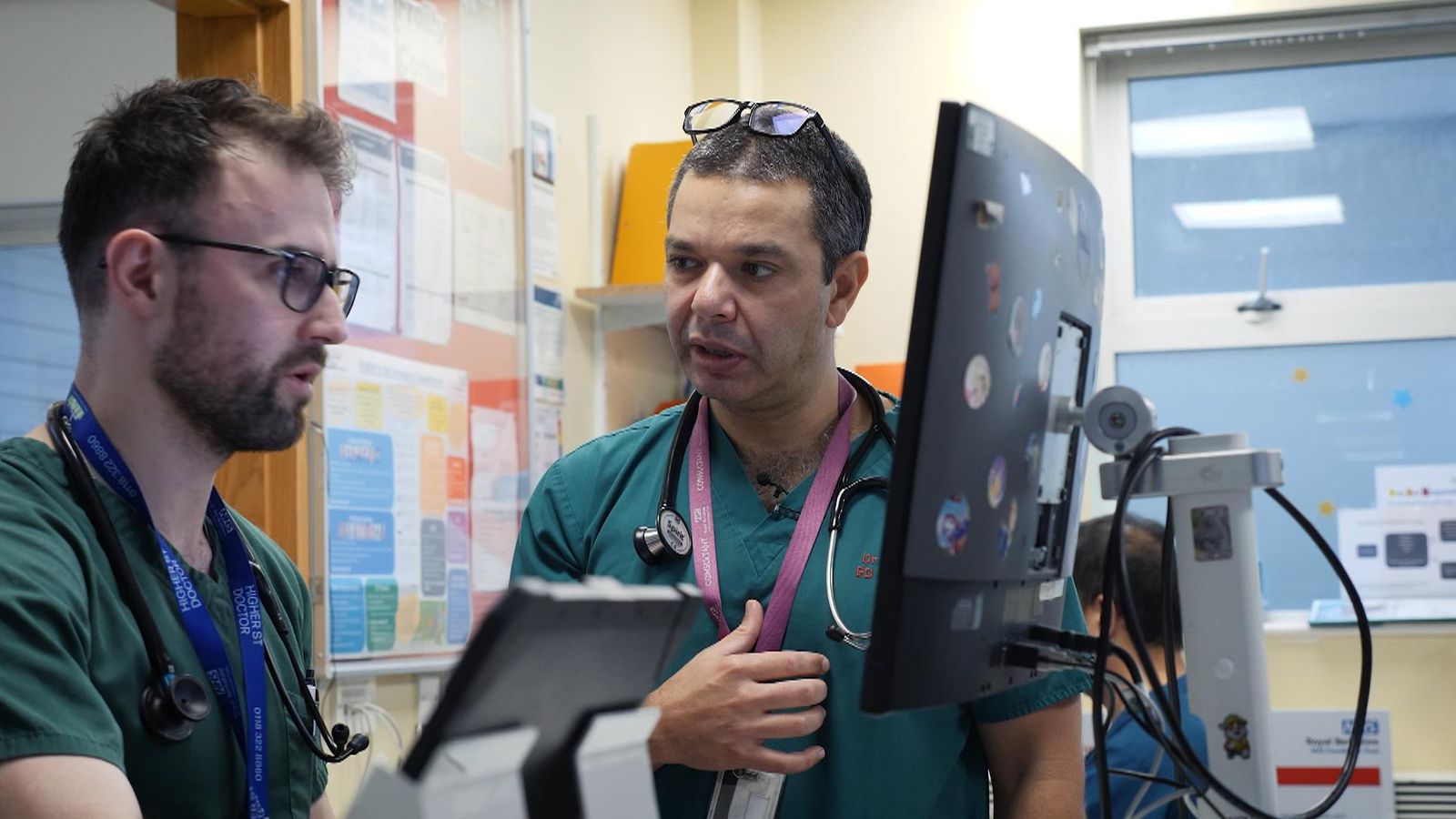U.K News
Health anxiety – not emergencies – clogging up A&E, doctors warn

The NHS Winter Crisis: A Look Inside the Struggle
The National Health Service (NHS) in England is no stranger to winter crises, but this year’s challenges have been particularly stark. Sky News was granted rare access to the Royal Berkshire Hospital in Reading, one of the busiest in the southeast, to document the struggles faced by frontline staff during another grueling winter season. The question on everyone’s mind: Why does this happen year after year, and is there a way to prevent it? The answers, shared by some of the hospital’s most experienced clinicians, are both surprising and unsettling.
The Overwhelmed Emergency Department
Dr. Omar Nafousi, the clinical lead of the hospital’s Accident and Emergency (A&E) department, describes this winter as the “busiest by far” in his years of service. The root of the problem, he explains, lies in the sheer number of patients flooding the emergency room—many of whom don’t actually need urgent care. “I see people who don’t need to be here, people who came late, people who are just concerned, and people sent by their friends because their friends are concerned,” he says. The aftermath of the COVID-19 pandemic has left a lingering sense of anxiety, driving people to seek medical attention for minor symptoms or fears, such as young individuals worried they’ve had a heart attack after experiencing chest pain for just a few minutes. These visits, while understandable, are overwhelming the system and driving up wait times for those who truly need emergency care.
A Grim Prediction: The End of Open-Access A&E
Dr. Jane Brenchley, another senior clinician in the A&E department, paints an even bleaker picture. She warns that the NHS may soon be forced to restrict access to emergency services, a notion that would have been unimaginable just a few years ago. “As other services fall apart or become harder to access, more people end up here because it’s the easy option,” she explains. “You know if you turn up, you’ll be seen.” But this may not be the case for much longer. Dr. Brenchley fears the system may reach a breaking point where clinicians are forced to turn people away, telling them, “This isn’t an emergency.” Such frank admissions from senior clinicians are rare, but they highlight the desperation felt by overstretched staff.
Primary Care: The First Line of Defense
The pressures on A&E are not occurring in isolation; primary care services are also struggling to cope with soaring demand. Dr. Amit Sharma, a GP who runs four surgeries near the Royal Berkshire Hospital, shares data that reveals a post-pandemic surge in demand for appointments. In November 2018, GP practices saw around 27 million appointments, but last month, that number peaked at nearly 40 million. The driving force behind this surge? Anxiety. “People are more fearful and anxious about their health,” Dr. Sharma explains. While increased awareness of health issues can be a good thing—especially for catching serious conditions like cancer early—GPs are noticing a troubling trend: young, otherwise healthy individuals are seeking medical attention for self-limiting illnesses or symptoms linked to mental health conditions.
The Perfect Storm: Systemic Challenges and Patient Mindsets
This winter has been particularly challenging due to the early and severe surge of flu, norovirus, and other winter viruses. However, the NHS is also grappling with deeper, systemic issues. Patients are often unable to access timely social care, leading to late discharges and bed blockages. The NHS estate is in disrepair, and staffing shortages are crippling the system. Yet another challenge looms: changing the mindset of patients who demand urgent care when it’s not always necessary. The NHS must find a way to educate the public about appropriate uses of emergency services while ensuring those who truly need help can access it without delay.
A Call for Change: Breaking the Cycle
The insights from clinicians at the Royal Berkshire Hospital and beyond are stark. While the NHS has always been a safety net for those in need, the current system is unsustainable. Patients, clinicians, and policymakers must come together to address the root causes of this winter’s crisis—and every winter’s crisis. This includes investing in mental health support to reduce anxiety-driven visits, strengthening primary and social care services, and educating the public about when and how to seek medical help. Only then can the NHS hope to break the cycle of annual winter crises and ensure that those who truly need emergency care can receive it without delay.